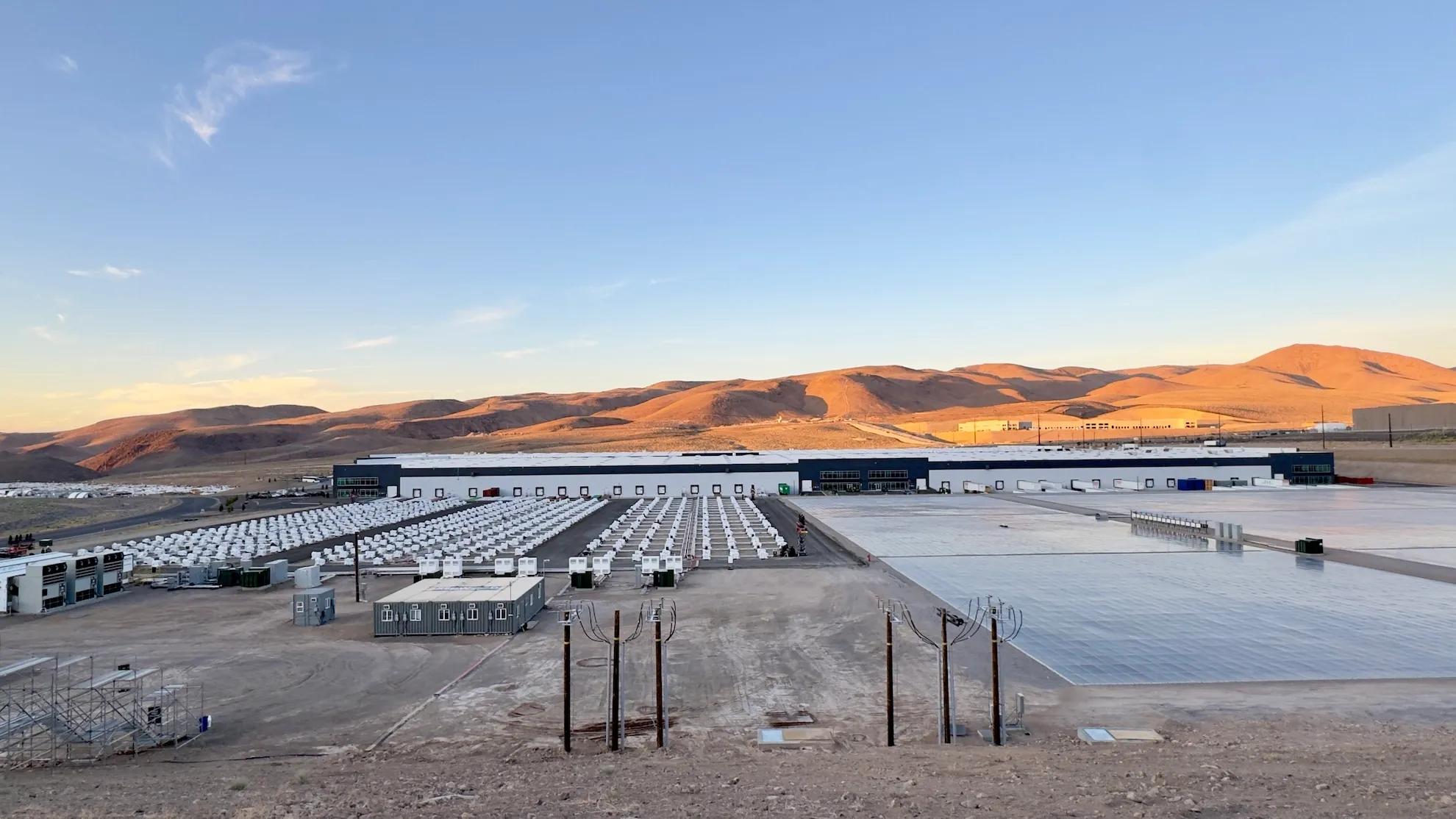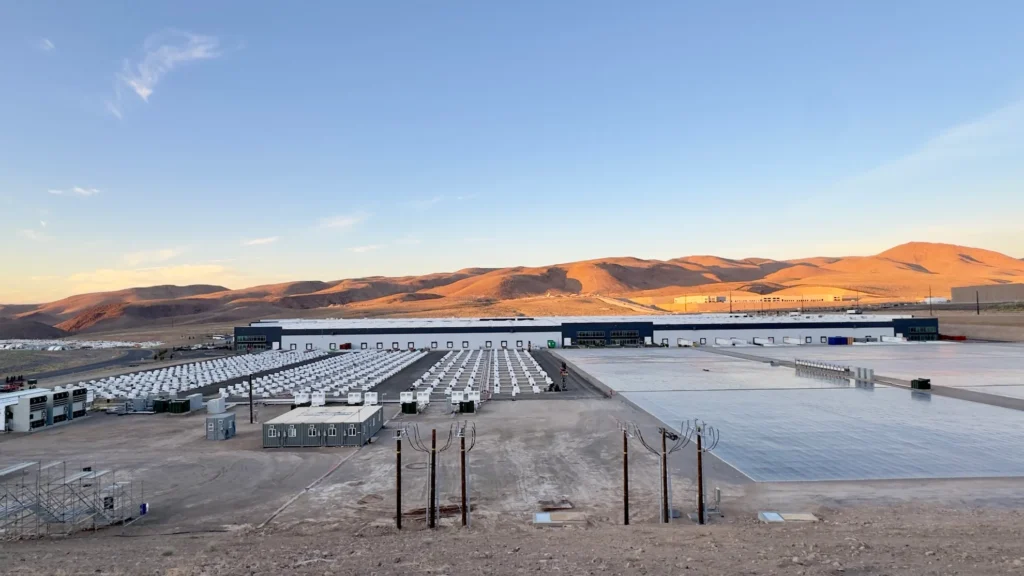Tucked between two massive buildings in the hills of the Nevada desert, 805 retired electric vehicle (EV) batteries lie in a neat formation, each one wrapped in nondescript white tarps. To the untrained eye, they may appear as mere remnants of outdated technology. However, in reality, they represent the largest microgrid in North America, powering a remarkable 2,000 GPU modular data center. This innovative setup is a testament to Redwood Materials’ pioneering approach to energy storage and sustainability.
Redwood Materials, founded by Tesla co-founder JB Straubel, has officially launched its energy storage business, aiming to revolutionize how energy is stored and utilized, particularly for the burgeoning demands of artificial intelligence (AI) data centers. With the increasing reliance on AI technologies that require vast computational power, the need for efficient and sustainable energy solutions is more pressing than ever.
The Need for Energy Storage
The advent of AI technologies has led to an explosion in data generation and processing, necessitating substantial energy resources. According to a recent report by the International Energy Agency (IEA), data centers account for about 1% of global electricity demand, a figure expected to rise as AI and cloud computing grow. This growth presents both challenges and opportunities for energy providers and technology companies alike.
Redwood’s Innovative Approach
Redwood Materials’ strategy revolves around repurposing retired EV batteries, which would otherwise contribute to waste. By harnessing these batteries, the company seeks to create a sustainable energy storage solution that not only minimizes environmental impact but also capitalizes on existing technologies.
JB Straubel stated, “We are excited to bring our energy storage solutions to the market. By reusing EV batteries, we are not just addressing energy storage needs but also tackling the issue of battery disposal and recycling.” This dual approach positions Redwood as a leader in both energy storage and sustainability.
Targeting AI Data Centers
The first target for Redwood’s energy storage solutions is AI data centers, which are notorious for their high energy consumption. These centers require reliable and efficient energy to maintain operations, especially as they scale up to accommodate growing workloads.
Advantages for AI Operations
Utilizing retired EV batteries for energy storage offers several advantages for AI operations:
- Cost Efficiency: Repurposing existing battery systems can lower the initial investment required for energy infrastructure.
- Environmental Impact: By recycling EV batteries, Redwood helps reduce the environmental footprint of data centers.
- Scalability: The modular nature of Redwood’s systems allows for easy expansion as demand increases.
- Reliability: Stored energy can provide backup power during peak demand times or outages, ensuring uninterrupted operations.
Market Dynamics and Future Prospects
As the demand for AI applications continues to surge, so does the need for innovative energy solutions. Redwood’s entry into the energy storage market is well-timed, as more companies seek ways to enhance their energy efficiency and sustainability practices.
The energy storage market is expected to grow significantly in the coming years, with a report from BloombergNEF projecting that the global energy storage market will reach $620 billion by 2040. This growth presents an opportunity for Redwood Materials to establish a strong foothold by providing tailored solutions for high-demand industries like AI.
Potential Challenges
Despite the promising outlook, Redwood may face challenges as it ventures into this competitive landscape. Established players in the energy storage sector, such as Tesla Energy and LG Chem, have already made significant investments in battery technology and energy solutions.
Additionally, regulatory hurdles and the need for extensive testing and certification of battery systems can pose obstacles. However, Redwood’s unique approach of leveraging retired EV batteries may provide them with a competitive edge.
The Path Forward
In conclusion, Redwood Materials is poised to make a significant impact in the energy storage market, particularly for AI data centers. By focusing on sustainability and repurposing existing technologies, the company aims to address the growing energy demands of modern computing.
As the world increasingly turns to AI solutions, the need for efficient energy storage will only grow. Redwood’s innovative approach not only addresses this need but also reinforces the importance of recycling and sustainability in the tech industry.
With the launch of its energy storage business, Redwood Materials is setting a precedent for how companies can integrate environmental considerations into their operational strategies while meeting the demands of a rapidly evolving technological landscape.
“The future of energy storage lies in maximizing the potential of existing technologies while minimizing waste,” emphasizes Straubel.
Key Takeaways:
- Redwood Materials has launched a new energy storage business targeting AI data centers.
- The company repurposes retired EV batteries to create a sustainable energy solution.
- As demand for AI increases, so does the need for innovative energy storage solutions.
- Redwood’s approach may provide significant cost and environmental benefits.


